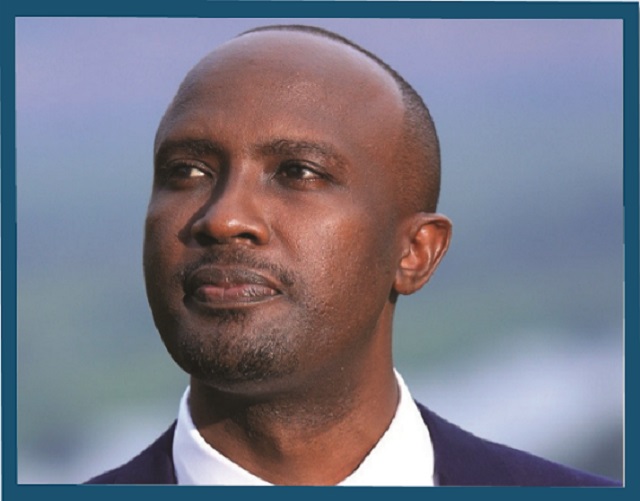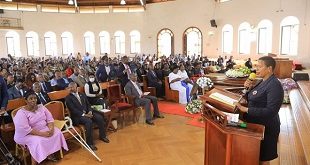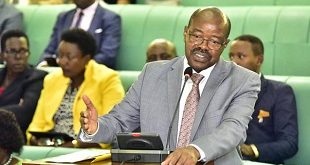
Dr. Denis Akankunda is the founder and CEO of Public Speaking Uganda (PSU). He spoke to The Independent’s Agnes E Nantaba about the challenges and opportunities of public speaking sphere in the country.
What are the key elements in your management philosophy as a manager?
I work with a team of semi-independent personnel who underwent training after which I observed something unique in their passion for communication coaching. Therefore, as co-trainers, I reach out to them to run the programme along with me. But there is a mainstream programme that I run as a principle trainer, so in terms of management, we don’t have that enormous personnel needs rather than identifying people who are interested in the idea. We can only achieve our goal through close supervision. Delegation has its challenges but it has worked for me and it boils down to the people you screen to work with. Making excuses seems to be engrained in our work culture but I am lucky to be working with people who are self starters, take initiatives otherwise before that, it was quite a bad experience.
What is your assessment of the performance of the art of public speaking in Uganda?
More than 90% are faults as most professionals have never received any coaching in communication and therefore rely on the natural talent to communicate. With trainings, people feel a great sense of relief as they can communicate professionally in any form and can manage content, project their voices where need be and also able to manage texts during presentations.
Communication analysts point out that in the whole of East Africa, Ugandans have the best CVs but cannot express themselves in interviews. Where does the problem lie?
The problem is multifaceted; some span from culture right from childhood and the only solution is to train children so that they become confident. There is also the conventional issue where a section of work places have dominant personalities as well as introverts. If there are thrilling individuals within an organization that seem to always do the talking, the vast majority are withdrawn. But when people are trained in an organization to communicate in non-aggressive manner, then gradually, they change.
Two years ago, PSU conducted a survey that revealed that most Ugandan public and private managers do not know how to speak in public despite having a good command of English language. What were some of the key findings of the survey?
The key issue was confidence. For instance, as part of the survey, we attended conferences and workshops, and observed the speaker’s communication skills but one key challenge that we noticed was lack of confidence as people battled with anxiety or extreme fear.
Another issue is that even for the confident ones, they tend to enjoy their confidence more than the audience needs it. Such people have a challenge of managing confidence because they are very possessed and thus you observe a very fatigued audience that has no choice but to listen.
Another problem is awkward body posture as people don’t know how to use the arms or gestures and other body parts in communication as a means of establishing contact with the audience. There are some positions that are termed as fit or demeaning to withdraw from the task of being the communicator.
Eye contact is a major issue which should be worked upon and it’s a key denominator in expression and the most impactful way to communicate.
How are you working to improve the state of affairs?
We have a curriculum that emphasizes all the above pointers. For instance, if you are handling a speech, how do you communicate effectively, and in case of a question and answer session, how do you handle emotions not to make it provocative or irritating to come out diplomatically? We have a curriculum that predicts different public speaking environments and prescribes attributes that people should try and master in public speaking.
Some young professionals are pursuing public speaking as a vocation. How important is public speaking in someone’s career?
Public speaking can be a stimulus that can propel people’s careers because with better communication, one can go places and work anywhere. Communicating well may not be just the word but the relevance of the message and therefore it is simply a channel that can take one places in a carrier.
What is your projection of public speaking in Uganda in the next few years?
We are looking at having much interaction with the government and the business community after more than a year of piloting. Public speaking is still a virgin and relevant area with much potential that we need to make best use of. We don’t want to rush into prosperity financially but focus on capacity building.
****
 The Independent Uganda: You get the Truth we Pay the Price
The Independent Uganda: You get the Truth we Pay the Price



I agree with Dr. Akankunda about the great value of public speaking. I teach public speaking at Daytona State College in Florida. We have found that students who complete a public speaking course are more successful in higher education, in the workplace and in their personal lives. I had a student visiting from Uganda who become a more confident and successful speaker by the end of the course. A report from the National Association of Colleges and Employers shows that employers want job candidates with strong communication skills.
I have noted that your next training will start on 13th March, I would like to attend.What time do you start.
Hello, I would love to attend your next training please.